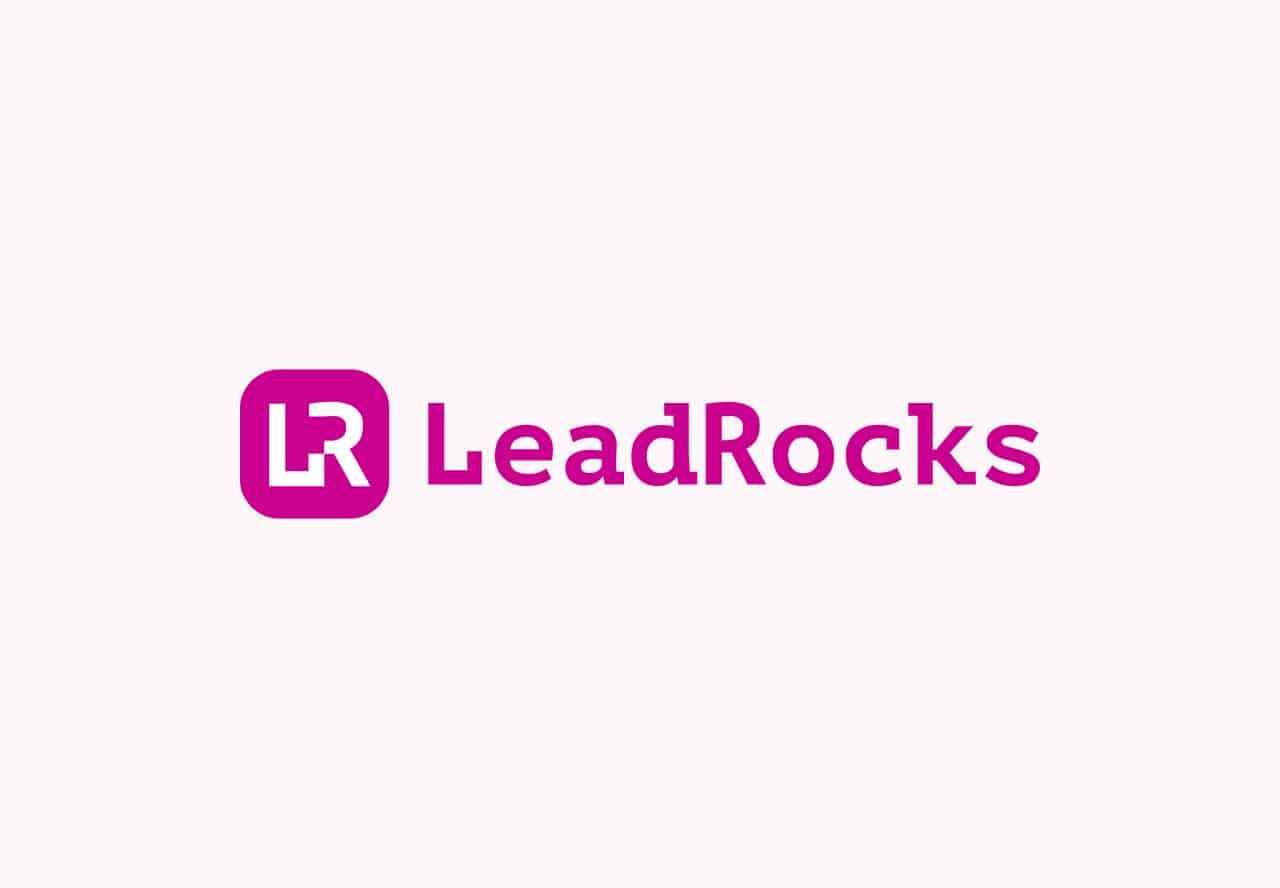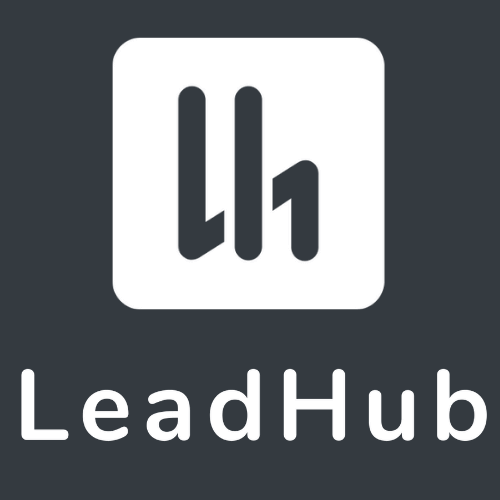Description

Velocify

LeadRocks

LeadHub
Comprehensive Overview: Velocify vs LeadRocks vs LeadHub
Velocify
a) Primary Functions and Target Markets
Primary Functions: Velocify is a sales automation and lead management platform designed to streamline sales processes and enhance lead conversion rates. Its primary functions include lead distribution, sales cadence automation, and real-time performance analytics. Velocify offers features such as automatic lead prioritization, email marketing automation, and phone dialer integrations.
Target Markets: Velocify primarily targets industries with high sales volumes and long sales cycles, such as mortgage lending, insurance, education, and automotive sales. It caters to sales teams looking to optimize their lead management processes and improve conversion rates.
b) Market Share and User Base
Velocify is a well-established player in the sales automation space, particularly within the industries it targets. It's a choice platform for medium to large enterprises with significant sales operations. However, its market share is smaller compared to larger CRM systems with built-in sales automation, like Salesforce.
c) Key Differentiating Factors
- Industry Focus: Highly specialized tools for mortgage and insurance sectors.
- Lead Prioritization: Advanced algorithms to ensure high-priority leads are addressed quickly.
- Comprehensive Analytics: Strong emphasis on performance analytics and reporting.
LeadRocks
a) Primary Functions and Target Markets
Primary Functions: LeadRocks is a lead generation platform that provides businesses with access to a large database of B2B contact information. It focuses on helping sales and marketing teams find and connect with potential customers by providing email addresses, phone numbers, and other pertinent contact details.
Target Markets: LeadRocks targets small to medium-sized businesses (SMBs) and marketing agencies seeking to enhance their prospecting efforts and fill their sales pipelines more efficiently.
b) Market Share and User Base
LeadRocks operates in a competitive market for lead generation tools, facing competition from alternatives like ZoomInfo and LinkedIn Sales Navigator. Its user base tends to skew towards SMBs and agencies because of its affordability and ease of use compared to enterprise-grade solutions.
c) Key Differentiating Factors
- Database Size: Emphasis on a sizable database of B2B contacts.
- Affordability: More cost-effective for SMBs.
- Ease of Use: User-friendly interface tailored for quick lead sourcing.
LeadHub
a) Primary Functions and Target Markets
Primary Functions: LeadHub is a robust marketing and lead management platform offering a comprehensive suite of tools for lead generation, nurturing, and conversion. This includes CRM integration, campaign management, tracking, and reporting functionalities.
Target Markets: LeadHub targets marketing teams in medium to large enterprises across various sectors. It is designed for businesses looking for an all-in-one platform to handle complex lead journeys and track marketing effectiveness.
b) Market Share and User Base
LeadHub's market share varies due to the relative niche focus on integrated marketing and lead management solutions. It is popular within the enterprise segment that requires seamless integration between marketing campaigns and sales follow-ups.
c) Key Differentiating Factors
- CRM Integration: Deep integration with CRM systems for synchronized data management.
- Comprehensive Toolset: From campaign management to detailed analytics.
- Scalability: Designed to handle large volumes of leads and complex marketing campaigns.
Comparison Summary
- Functionality: Velocify excels in sales automation, LeadRocks in lead generation, and LeadHub in integrated marketing management.
- Target Market: Velocify focuses on larger enterprises in specific sectors, LeadRocks on SMBs, and LeadHub on marketing teams within enterprises.
- Differentiators: Velocify offers industry-specific features, LeadRocks is affordable and user-friendly, and LeadHub supports comprehensive marketing operations with CRM integration.
- User Base: Velocify is chosen by industries with long sales cycles, LeadRocks by cost-conscious SMBs, and LeadHub by enterprises needing integrated marketing solutions.
Contact Info

Year founded :
2004
+1 844-327-3296
Not Available
United States
Not Available

Year founded :
Not Available
Not Available
Not Available
Not Available
Not Available

Year founded :
2011
Not Available
Not Available
United States
http://www.linkedin.com/company/lead-hub
Feature Similarity Breakdown: Velocify, LeadRocks, LeadHub
Here's a feature similarity breakdown for Velocify, LeadRocks, and LeadHub:
a) Core Features in Common
-
Lead Management: All three platforms offer robust lead management systems allowing users to capture, track, and organize leads efficiently.
-
Sales Automation: Each tool provides sales automation capabilities to streamline the sales process and increase productivity.
-
Integration Capabilities: All platforms integrate with various CRM systems, email services, and other sales tools to enhance functionality and data flow.
-
Reporting and Analytics: Each product offers reporting and analytics to help users track performance metrics and optimize lead conversion strategies.
-
Contact Management: They provide features for managing and segmenting contacts, ensuring clear organization and communication.
b) User Interface Comparisons
-
Velocify: Known for its professional and more data-driven interface. Velocify tends to have a steeper learning curve due to its comprehensive features and advanced analytics. It's best suited for users who need deep insights and detailed reporting.
-
LeadRocks: Typically features a modern, clean, and more user-friendly interface. It's designed to be intuitive, which reduces the learning curve for users, making it ideal for small to mid-sized businesses that need a plug-and-play solution.
-
LeadHub: Offers a balanced interface that combines simplicity with functionality. It prioritizes ease of use while still offering a range of features. LeadHub’s UI is often praised for its customization options, which allow users to tailor the dashboard to their preferences.
c) Unique Features
-
Velocify:
- Lead Prioritization Algorithm: Velocify is especially known for its advanced lead scoring and prioritization features, which help sales teams focus on the most promising leads.
- Dial-IQ: An integrated phone solution that offers features like click-to-call and local presence dialing.
-
LeadRocks:
- Data Enrichment Tools: LeadRocks emphasizes data enrichment features, providing users with detailed lead information and helping enhance lead profiles.
- LinkedIn Integration: Strong integration with LinkedIn for lead sourcing and outreach, making it ideal for B2B-focused teams.
-
LeadHub:
- Marketing Automation: This platform often includes more extensive marketing automation tools, blending marketing and sales efforts seamlessly.
- Custom Workflow Builder: Allows users to create complex custom workflows to fit unique sales processes.
Each of these tools serves slightly different needs based on their unique features and interface designs, so the best choice would depend on specific business requirements and user preferences.
Features

Reporting and Analytics
Sales Automation
Lead Management
Communication Tools

Lead Generation
Data Management
Performance Tracking
Outreach Tools

Integration
Lead Management
Communication Tools
Analytics and Reporting
Best Fit Use Cases: Velocify, LeadRocks, LeadHub
When considering Velocify, LeadRocks, and LeadHub, it's important to understand the strengths and ideal use cases for each platform, as they are tailored to different aspects of lead management and sales optimization.
a) Velocify
Best Fit Use Cases:
- Sales Organizations: Velocify is ideal for medium to large-sized sales organizations that need a robust lead management and sales automation platform. It excels in optimizing lead distribution and driving sales productivity.
- Real Estate and Mortgage Companies: These industries benefit particularly from Velocify's ability to handle high volumes of leads and automate workflows to ensure timely follow-up.
- Educational Institutions: Schools and universities seeking to manage inquiries and admissions processes may find Velocify useful for streamlining communications and improving enrollment processes.
Catering to Different Industry Verticals/Sizes:
- Offers customizable workflows to fit the unique sales processes in various industries.
- Scales well for businesses with large, distributed sales teams, often seen in enterprise-level companies.
b) LeadRocks
Preferred Scenarios:
- Small Businesses and Startups: LeadRocks is great for small to medium-sized businesses that need a cost-effective solution to generate and manage leads without the complexity of larger platforms.
- Outbound Sales Teams: Companies focusing on outbound sales efforts would benefit from LeadRocks' capabilities in list building and lead generation.
- Companies Prioritizing Data Quality: If precise and accurate contact information is crucial, LeadRocks' emphasis on clean data is a significant advantage.
Catering to Different Industry Verticals/Sizes:
- Primarily targets industries where outbound sales strategies are prominent, such as SaaS, professional services, and consulting.
- Offers flexible pricing that scales with company size, making it accessible to startups and smaller enterprises.
c) LeadHub
When to Consider:
- Marketing Agencies: LeadHub is a strong choice for marketing agencies that need robust tools for tracking lead sources and analyzing campaign performance across multiple clients.
- E-commerce Platforms: Companies selling online can benefit from LeadHub's ability to capture and analyze customer interactions to improve conversion rates.
- Businesses Focusing on CRM Integration: If seamless CRM integration is a priority, LeadHub's capabilities in consolidating customer information and interactions make it a suitable choice.
Catering to Different Industry Verticals/Sizes:
- Versatile enough to cater to various industries, but especially beneficial for businesses with significant online customer interaction.
- Flexible integration options make it a good fit for businesses of varying sizes, from sole proprietors to mid-sized companies.
Summary
Each platform serves unique needs and business contexts:
- Velocify stands out in environments with high lead volumes and complex sales processes, ideal for larger teams.
- LeadRocks is perfect for smaller businesses or those emphasizing outbound lead generation, focusing on data quality.
- LeadHub is suited for marketing agencies and e-commerce companies needing integrated lead and customer data management with robust analysis tools.
Understanding these products' core strengths and aligning them with your specific business needs will help in choosing the best fit for your organization.
Pricing

Pricing Not Available

Pricing Not Available

Pricing Not Available
Metrics History
Metrics History
Comparing teamSize across companies
Conclusion & Final Verdict: Velocify vs LeadRocks vs LeadHub
When evaluating Velocify, LeadRocks, and LeadHub, it's essential to consider various aspects such as functionality, ease of use, pricing, integrations, customer support, and the specific needs of your business. Here's a conclusion and final verdict for these three lead management platforms:
a) Best Overall Value
LeadHub tends to offer the best overall value, primarily due to its comprehensive features catering to both small and large enterprises. It strikes a balance between affordability and functionality with advanced lead scoring, robust automation, and seamless integration capabilities.
b) Pros and Cons
Velocify:
-
Pros:
- Strong focus on sales acceleration and automation.
- Advanced prioritization and distribution of leads.
- Comprehensive analytics and reporting tools.
-
Cons:
- Can be expensive, especially for small businesses.
- A steeper learning curve for new users.
- Limited customization options.
LeadRocks:
-
Pros:
- User-friendly interface makes it accessible for beginners.
- Relatively cost-effective, suitable for startups and smaller teams.
- Easy integration with other CRM tools.
-
Cons:
- May lack some advanced features needed by larger organizations.
- Limited customer support options.
- Automation capabilities are not as robust as competitors.
LeadHub:
-
Pros:
- Offers a wide range of advanced features and integrations.
- Scalable solutions, ideal for growing businesses.
- Strong customer support and user community.
-
Cons:
- Mid-range pricing, which might be on the higher side for very small teams.
- Some users may find the feature set overwhelming initially.
- Occasional reports of minor bugs or interface lags.
c) Recommendations for Users
-
Evaluate Business Needs: Determine the size and specific requirements of your team. For small teams or startups, LeadRocks might be the ideal choice due to its simplicity and affordability. Larger businesses or those with specific needs in lead automation and analytics will benefit more from Velocify or LeadHub.
-
Trial Period: Take advantage of any free trials or demos offered by these platforms to understand their functionality and user experience firsthand.
-
Consider Budgeting: If budget is a concern, compare the pricing models of each product, keeping in mind any hidden costs or necessary add-ons that might affect the overall expense.
-
Integration Needs: Ensure that the platform you choose integrates smoothly with your existing tools and systems to avoid data silos and streamline your processes.
-
Customer Support and Community: Check the availability of customer support and the robustness of user communities. This can be crucial for resolving issues quickly and optimizing the use of the platform.
Ultimately, the decision between Velocify, LeadRocks, and LeadHub should be based on aligning each product’s strengths and weaknesses with your company’s specific needs and goals. For the best overall balance of features, pricing, and support, LeadHub typically emerges as a strong contender.